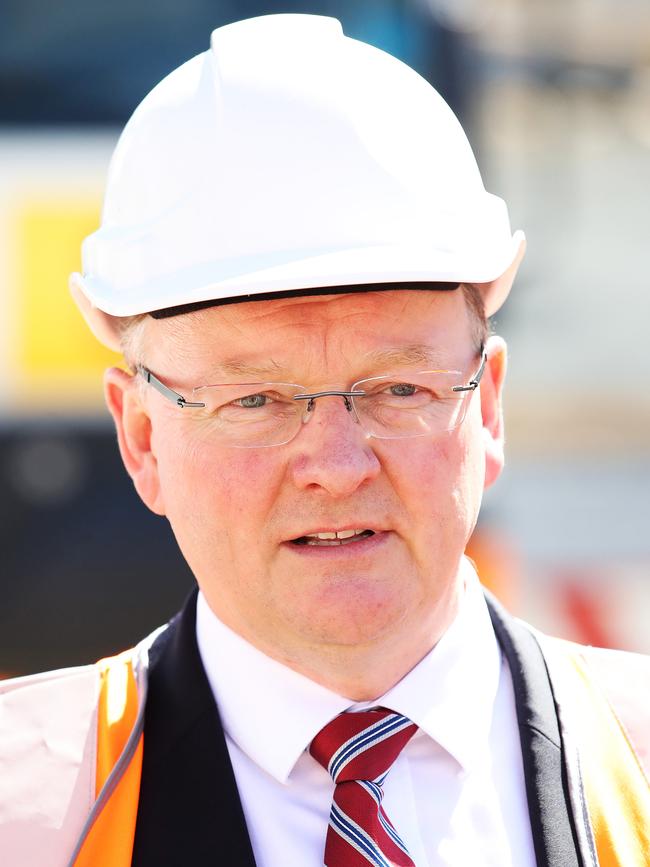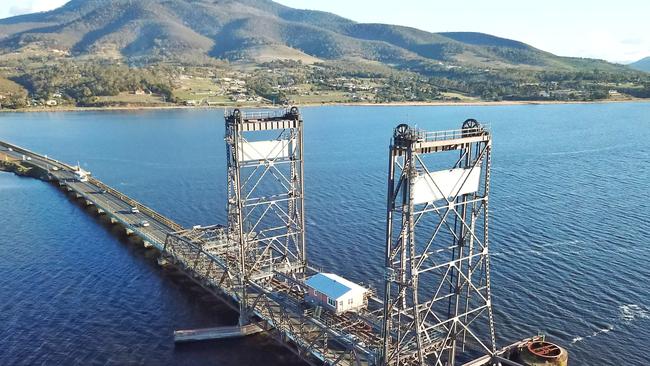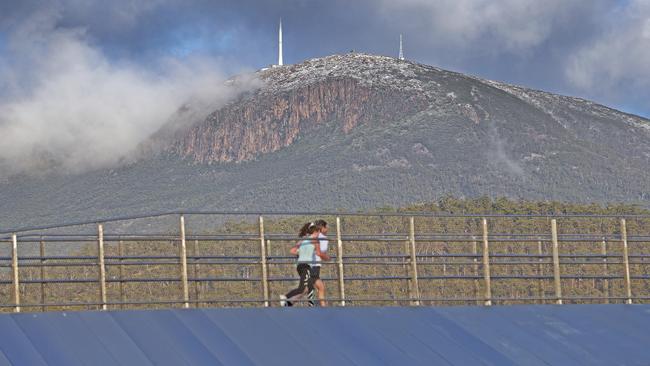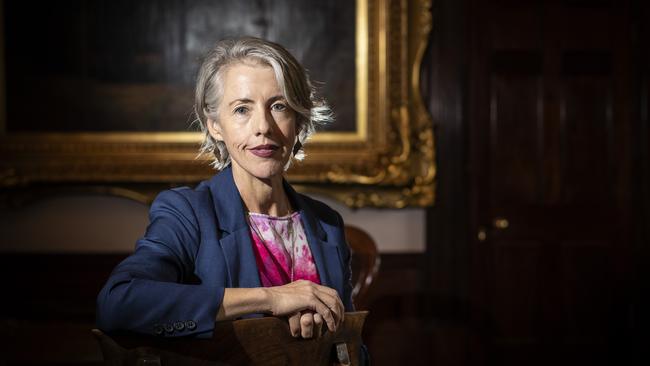Planning Minister says new Major Projects Legislation will be more efficient and create certainty
Controversial new major projects laws will be debated soon in Parliament, with the types of projects that could be assessed if it becomes law revealed. We sat down with Planning Minister Roger Jaensch for an in-depth chat.
Politics
Don't miss out on the headlines from Politics. Followed categories will be added to My News.
THE State Government hopes new Major Projects Legislation will become law before the end of 2020, flagging the new Bridgewater Bridge as likely being the “first cab off the rank” to be used in the scheme.
In an exclusive interview with the Mercury, Planning Minister Roger Jaensch also effectively ruled out the new laws being used for the proposed cable car for kunanyi/Mount Wellington, and said the Government wanted the Northern Regional Prison project to be assessed under normal planning processes.
The legislation will remove councils from the assessment of major projects and put them in the hands of expert panels, replacing old Projects of Regional Significance rules which have never been used.
The Greens and several community groups, including the Planning Matters Alliance, Tasmanian Conservation Trust and opponents of the cable car project have voiced strong opposition to the proposed legislation.
But Labor last week indicated it would support the Bill, meaning it is more likely to pass through the Legislative Council where the party has four members and the Liberals two in the 15-member chamber.

Mr Jaensch said the Bill would likely be introduced to Parliament in August, following a recent round of consultation which lasted 10 weeks.
Mr Jaensch said 213 submissions were received from individuals, 322 from the Hobart Not Highrise group, 108 from the Planning Matters Alliance Tasmania and about 1000 from the Tasmanian Conservation Trust.
“This is a tool that’s been missing from our toolkit as a state to be able to deal with projects that are complex and require assessment under many different pieces of legislation,’’ he said.
“We are providing a piece of legislation that most other states have in some form and that Tasmania has been missing out on.
“We need this if we are going to get significant projects up and running in reasonable time frames.”
Mr Jaensch said the legislation would provide more certainty for developers about the viability of major projects at an earlier stage, potentially saving significant time and money during complex planning processes.
He said councils would be represented on the independent panels, which would be conducted at arm’s length from government.

Mr Jaensch said the Bridgewater Bridge — a $576 million project outlined in the Hobart City Deal — was an example of a one-off, complex project which could fall under the Major Projects Legislation.
He also flagged renewable energy projects as possible future examples for how the laws could be used.
He said the proposed Mount Wellington cable car project would continue to be assessed by the Hobart City Council and would not meet the criteria for a major project.
“If the government was minded to step in and take control of that project, we would have done it by now,’’ he said.

The Minister said it was too early to be definitive on whether a proposed prison at Westbury would fall under the scheme, but said it was still a preferred site and the project was a long way off seeking development approval.
He said the state’s economic recovery from the COVID-19 pandemic would heighten the importance of Tasmania being an attractive option for interstate and overseas developers.

Greens planning spokeswoman Rosalie Woodruff last month said the Major Projects Bill threatened the integrity of the state’s existing planning processes.
“The proposed change to planning laws bypasses local councils and communities,’’ she said.


